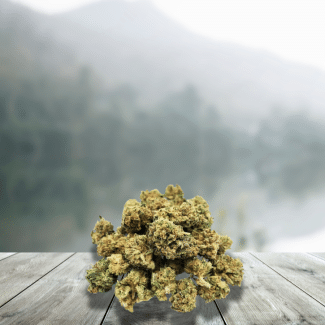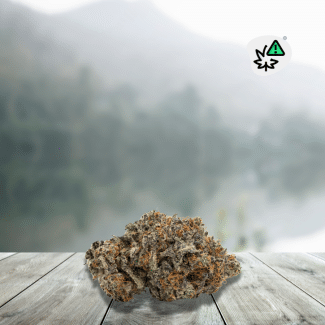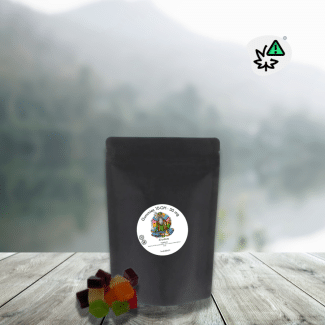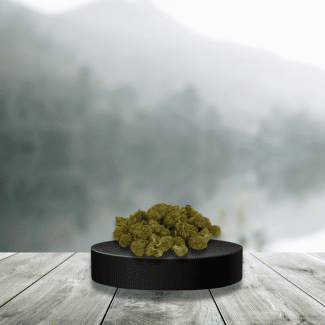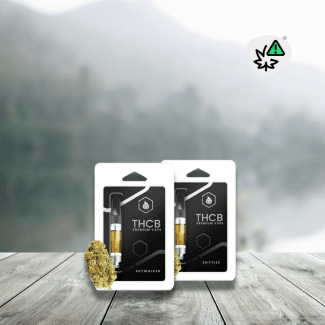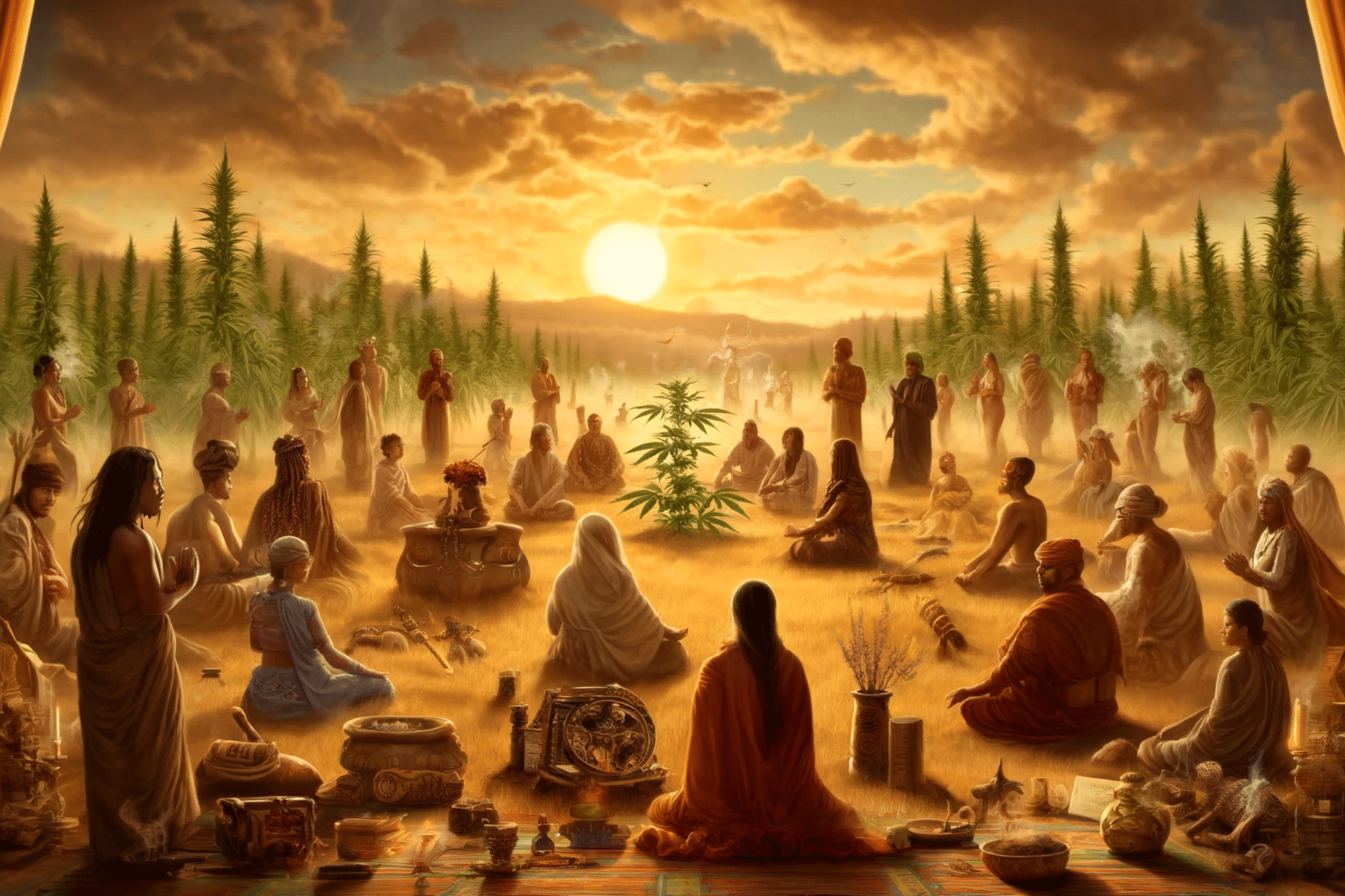
Cannabis and CBD in different religions: The spiritual, religious and sacred use of cannabis
Cannabis is one of the oldest plants used in spiritual and religious contexts around the world. This usage dates back several millennia, where it served as a gateway to trance, meditation heightened states of . Even today, this controversial plant continues to find its place in the spiritual practices and cultural traditions of many religions. In this article, discover the impact of cannabis in various beliefs, its ritual practices, and how it fits into religious traditions past and present.
India and Nepal: The Old World and the sacredness of cannabis
In India and Nepal, cannabis Hindu practices . The Atharva-Veda , a sacred text of Hinduism dating from around 2000 BC. BC, mentions cannabis among the “five sacred plants” . Three main forms of cannabis are distinguished and respected for their connection to spirituality:
- Bhang : Consumed as an infusion or drink, bhang is traditionally used during religious festivals.
- Ganja : This preparation of the leaves and tops of the plant is generally smoked for more intimate practices.
- Charas : Resin extracted from the plant, charas is reserved for specific rituals , often by ascetics and devotees of Shiva.
In Hindu tradition, cannabis is associated with Shiva , one of the most revered deities. Consuming bhang Maha Shivaratri festival or smoking charas is a way for yogis and sadhus to get closer to the divine. These substances are considered offerings to aid in Sadhana , an inner spiritual journey. At each festival, this tradition is respected despite modern laws which limit its use. The impact of cannabis is not limited to India. Its spread in Nepal , particularly during the Holi , is a manifestation of the sacredness of this plant.
Buddhism: The search for moderation
Buddhism has a nuanced view on the use of cannabis. In Buddhist teachings, the fifth precept recommends “abstaining from intoxicants” that lead to carelessness, which could include cannabis. However, the use of this plant is not systematically prohibited. Buddhist tantric writings , cannabis is sometimes mentioned for its medicinal properties.
Specific tantric traditions allow the use of cannabis in meditation rituals for its calming effects, although these practices remain uncommon and limited to certain esoteric schools. Mahakala Tantra gives a special place to psychoactive plants for spiritual and medicinal . This underlines the pragmatic and nuanced approach of Buddhism, which neither fully approves nor condemns the use of cannabis, leaving followers the freedom to adopt it according to their spiritual quest.
Africa: The cult of hemp and spiritual traditions
On the African continent , cannabis has a long spiritual tradition. curative and ritual purposes , such as to relieve pain or treat various ailments. The king of the Baluka in Congo established a cult around Riamba , or cannabis, as an alternative to fetish worship, using pipes made from gourds for rituals.
The Bashilenge of Congo have elevated the use of cannabis to the rank of religious cult . Called “Bena Riamba” or “the sons of hemp” , they celebrated sacred rituals around cannabis, consuming it abundantly to honor their culture. Hemp pipes took on symbolic importance and were used in peace treaties, trade agreements and war ceremonies . Among the Bashilenge , cannabis represented both life and friendship, unifying clan members in a spirit of brotherhood and peace.
Ancient China: Cannabis in Taoism and Shamanism
In China , the use of cannabis dates back to ancient times, with traces of shamanic and Taoist . Cannabis is mentioned in Taoist writings where it is associated with spiritual practices to achieve states of mystical consciousness . According to the Taoist encyclopedia Wushang Biyao , cannabis was used in censers during rituals. This practice allowed followers to communicate with spirits and lighten their bodies, feeling in communion with the divine.
Renowned Sinologist Joseph Needham explored the connection between the goddess Ma Gu , known as the Hemp Maiden , and cannabis. In Taoist tradition, Ma Gu was revered for her magical powers, and cannabis gathering rituals took place on the sacred mountain of Tai Shan. Through this mythological figure, the Taoists saw in cannabis a means of connecting to an invisible world, but also a symbol of spiritual purity .
The peoples of Central Asia and Scythian traditions
The ancient nomadic peoples of Central Asia , notably the Scythians , played a crucial role in the spread of the spiritual use of cannabis. The writings of Herodotus record that the Scythians used cannabis steam baths to purify themselves after battles. This ritual, which consisted of throwing cannabis onto heated stones to produce steam, allowed participants to achieve a state of collective euphoria and relaxation.
In addition to the Scythians, other Central Asian tribes incorporated cannabis into their spiritual practices, viewing it as a bridge to the spirit world. By creating an environment conducive to meditation and trance , these people transmitted their knowledge to surrounding cultures, influencing the ritual practices of distant regions.
Modern usage and the legacy of the hippies
With the rise of the hippie movement in the 1970s, the spiritual use of cannabis gained popularity in the West . Travelers returning from India and Nepal introduced the practices of meditation and cannabis consumption as a means of spiritual liberation to Europe and North America. This return to mystical origins was propelled by the Rastafari , which sees cannabis as a sacred tool for getting closer to Jah and spiritually elevated.
Rastafari consider cannabis, often called ganja , to be a gift from God intended to purify the soul and access a state of awakened consciousness . Consuming cannabis then becomes a sacred experience that is integrated into rituals, songs and prayers, aiming to reconnect with livity , a philosophy of life that advocates harmony with nature and justice.

